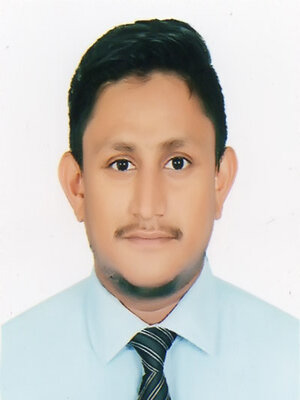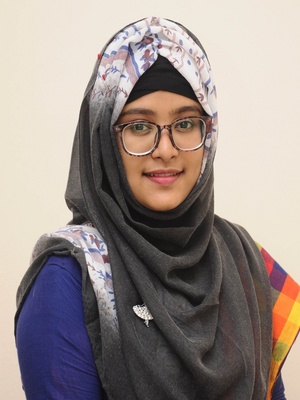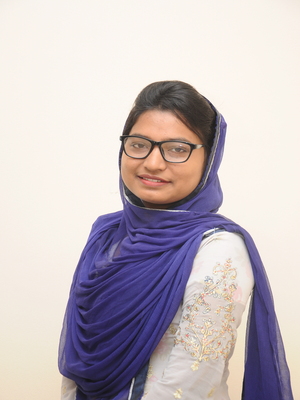The ocean, which covers 71.6% of our planet, is regarded as the earth's largest life support system due to its capacity for generating oxygen, absorbing carbon dioxide, providing food, nutrients, regulating biogeochemical nature, climate and so on. Bangladesh being a maritime country, need to adopt the blue economical challenges as a top priority to promote its socioeconomic growth in a sustainable way. After settlement of maritime issues with neighboring coastal states, the country is now legitimately entitles to approximately 118,813 sq. km of sea region, including the territorial sea, contagious zone as well as Exclusive Economic Zone. In this northern Bay of Bengal, the scope of blue economic activities includes coastal and marine fisheries, oil and gas, minerals, tourism, shipping, renewable energy, ship recycling, human pressures and other related fields. A thrust in blue economic development may come through sustainable ocean governance. Maritime education is already underway since 1970s and different institutions involved in this unique knowledge generation process. The country would be greatly benefited from the regional and global cooperation for developing and ensuring blue economic aspect.
Course Title | Course Code | Year and Semester of the courses |
| 1. Estuarine and Marine Ecology | EME 102 (T/P) | B.Sc Fisheries (Hons.) 1st Year 2nd Semester |
| 2. Marine Biology | MBI 201 (T/P) | B.Sc Fisheries (Hons.) 2nd Year 1st Semester |
3. Fisheries Oceanography | FOC 202 (T/P) | B.Sc Fisheries (Hons.) 2nd Year 2ndSemester |
4. Coastal Zone Management | CZM 202 (T) | B.Sc Fisheries (Hons.) 2nd Year 2ndSemester |
5. Aquatic Pollution and Toxicology | APT 301 (T/P) | B.Sc Fisheries (Hons.) 3rd Year 1st Semester |
6. Marine Fisheries Management | MFM 302 (T/P) | B.Sc Fisheries (Hons.) 3rd Year 2nd Semester |
| 7. GIS and Remote Sensing | GRS 401 (T) | B.Sc Fisheries (Hons.) 4th Year 1st Semester |
8. Mangrove Resources | MRE 401 (T) | B.Sc Fisheries (Hons.) 4th Year 1st Semester |
January-June Semester | ||
Name of the courses | Course Code | Credit (Theory) |
A. Compulsory Courses (4×2= 8 Credits) | ||
1. Marine Ecological Dynamics | MED-501 | 2 |
2. Tropical Marine Biology | TMB-501 | 2 |
3. Physical and Chemical Oceanography | PCO-501 | 2 |
4. Marine Survey and Research | MSR-501 | 2 |
B. Elective Courses (2×2= 4 Credits) | ||
1. Estuarine and Coastal Processes | ECP-501 | 2 |
2. Marine Botany | MBO-501 | 2 |
3. Mangrove and Reef Fisheries | MRF-501 | 2 |
4. Remote Sensing in Marine Fisheries | RMF-501 | 2 |
5. Navigation and Maritime Affairs | NMA-501 | 2 |
C. Research Work and Seminar |
| 2 |
Semester Total |
| 14 |
July - December Semester | ||
A. Compulsory Courses (4×2= 8 Credits) | ||
1. Biological Oceanography | BOC-502 | 2 |
2. Marine Biotechnology | MBT-502 | 2 |
3. Coastal and Marine Pollution | CMP-502 | 2 |
4. Marine Resources Conservation & Management | MCM-502 | 2 |
B. Elective Courses (2×2= 4 Credits) | ||
1. Climate Science and Meteorology | CSM-502 | 2 |
2. Marine Laws and Policies | MLP-502 | 2 |
3. Eco-engineering and Coastal Defense | ECD-502 | 2 |
4. Marine Biogeochemistry | MBC-502 | 2 |
5. Marine Stock Enhancement | MSE-502 | 2 |
C. Research Work and Seminar |
| 2 |
Semester Total |
| 14 |
Research Semester | ||
1. Research Work |
| 4 |
2. Thesis Evaluation |
| 5 |
3. Thesis Defense |
| 3 |
Semester Total |
| 12 |
1. Determination of phytoplankton sinking rate in Northern Bay of Bengal: Comparative study of seasonal carbon absorption
2. Enhancing scenario use in the maritime spatial planning
3. Seaweeds biodiversity in the coastal belt of Bay of Bengal
4. Physico-chemical variation in coastal waters of Salimpur, Chittagong
5. Eco-engineering for Coastal Defence Integrated with Sustainable Aquatic Food Production in Bangladesh” (ECOBAS: Phase II- 2 years)

Dr. Md Asaduzzaman
Associate Professor and Head

Avijit Talukder
Associate Professor

Dr. Md Sadequr Rahman Khan
Associate Professor

Mr. Abrar Shakil
Assistant Professor

Nayeema Ferdausy Hoque
Assistant Professor

Ms. Sumi Akter
Assistant Professor